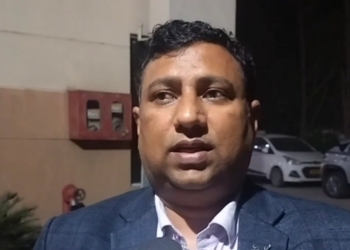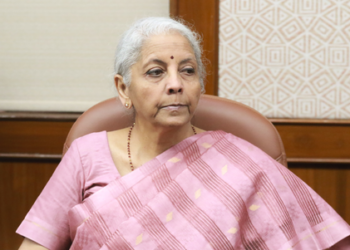New Delhi: In the absence of any firm or consistent evidence, the Supreme Court has acquitted a 69-year-old woman who was booked in 2005 under the dowry prohibition law.
A bench of Justices Vikram Nath and Sandeep Mehta was hearing a special leave petition against a decision of the Telangana High Court, which had upheld the appellant’s conviction under Section 420 IPC and Section 4 of the Dowry Prohibition Act but reduced her sentence of six months simple imprisonment to two months.
As per the prosecution, in November 2005, an engagement ceremony took place between the complainant and the appellant’s son, where Rs 50,000 was allegedly paid to the accused persons as a dowry.
Subsequently, the appellant and other accused demanded an additional dowry of Rs 5 lakh in cash, 20 tolas of gold, and other items, threatening to cancel the marriage if their demands were not met.
Despite offering Rs 1.5 lakh as a compromise, the complainant’s family was allegedly refused entry into the appellant’s home, and the marriage was called off.
An FIR was lodged against the appellant and two other accused, and after due investigation, the police filed a charge sheet. The trial convicted the appellant along with the two accused under the Dowry Prohibition Act, sentencing each to rigorous imprisonment of three years and six months respectively (with fines).
On appeal, Hyderabad’s Metropolitan Sessions Judge modified the sentence by reducing it to six months simple imprisonment for each offence, while maintaining the conviction.
In April 2023, the Telangana High Court partly allowed the revision plea of the appellant by reducing the sentence to two months’ simple imprisonment for each offence along with a higher fine amount but upheld the findings of guilt.
In its judgement, the Apex Court said that the prosecution’s assertion of an alleged dowry payment of Rs 50,000/- on the date of engagement remains unsubstantiated by any documentary evidence or independent corroboration.
It added that in the present case, the prosecution has relied heavily on oral testimonies, however, a close examination of the record reveals that these testimonies are marred by inconsistencies, lack of corroboration, and potential bias, rendering them unreliable as a whole.
Further, it said that the statements of the complainant, her parents, her maternal grandfather, and a family acquaintance “fail to inspire confidence due to contradictions and the absence of any corroborating documentary evidence”.
“In the absence of any firm or consistent evidence, the claim of a paid dowry remains insufficiently proven. In cases involving allegations of dowry demand and associated offences, the prosecution bears the burden of establishing its case through consistent and credible evidence,” the Top Court emphasised.
In his testimony, the family acquaintance alleged dowry payment during his examination-in-chief, but later retracted this assertion during cross-examination, admitting that he had no direct knowledge of the transaction and was merely repeating what he had heard.
“This retraction, coupled with his admitted close association with the complainant’s family, raises significant doubts about the credibility of his evidence. The other witnesses similarly fail to provide a consistent and reliable narrative,” said the Supreme Court.
Further, it noted that other witnesses largely reiterated the complainant’s allegations without adding any “material corroboration or firsthand details”, diminishing the evidentiary value of testimonies.
“A closer examination of the evidence reveals that much of the prosecution’s case is built on hearsay testimony, further weakening its credibility. This reliance on hearsay evidence, unsupported by documentary proof or neutral witnesses, casts significant doubt on the prosecution’s ability to prove its case beyond a reasonable doubt,” the Apex Court said.
It added that hearsay, unless falling within specific exceptions, cannot form the basis of a conviction, especially in cases where the charges involve serious allegations such as dowry demand and cheating.
“The absence of documentary evidence, combined with the inconsistencies and potential biases in the oral testimonies, creates a significant evidentiary gap. The principle that criminal convictions must rest on evidence that is clear, credible, and free from reasonable doubt has not been adhered to in this case,” ruled the Top Court. A conviction for dowry demand has to be founded on clear and credible evidence that proves the offence beyond a reasonable doubt, Justice Nath-led bench said.
Observing that the evidence on record was insufficient to uphold the appellant’s conviction beyond a reasonable doubt, the Apex Court said that the concurrent findings of guilt could not be sustained and acquitted the appellant of all charges.
It ordered: “The judgment and order dated 06.04.2023 passed by the High Court of Telangana at Hyderabad as well as the concurrent findings of the courts below, are hereby set aside. The appellant is acquitted of all charges. The appeal stands allowed.”
(IANS)
















